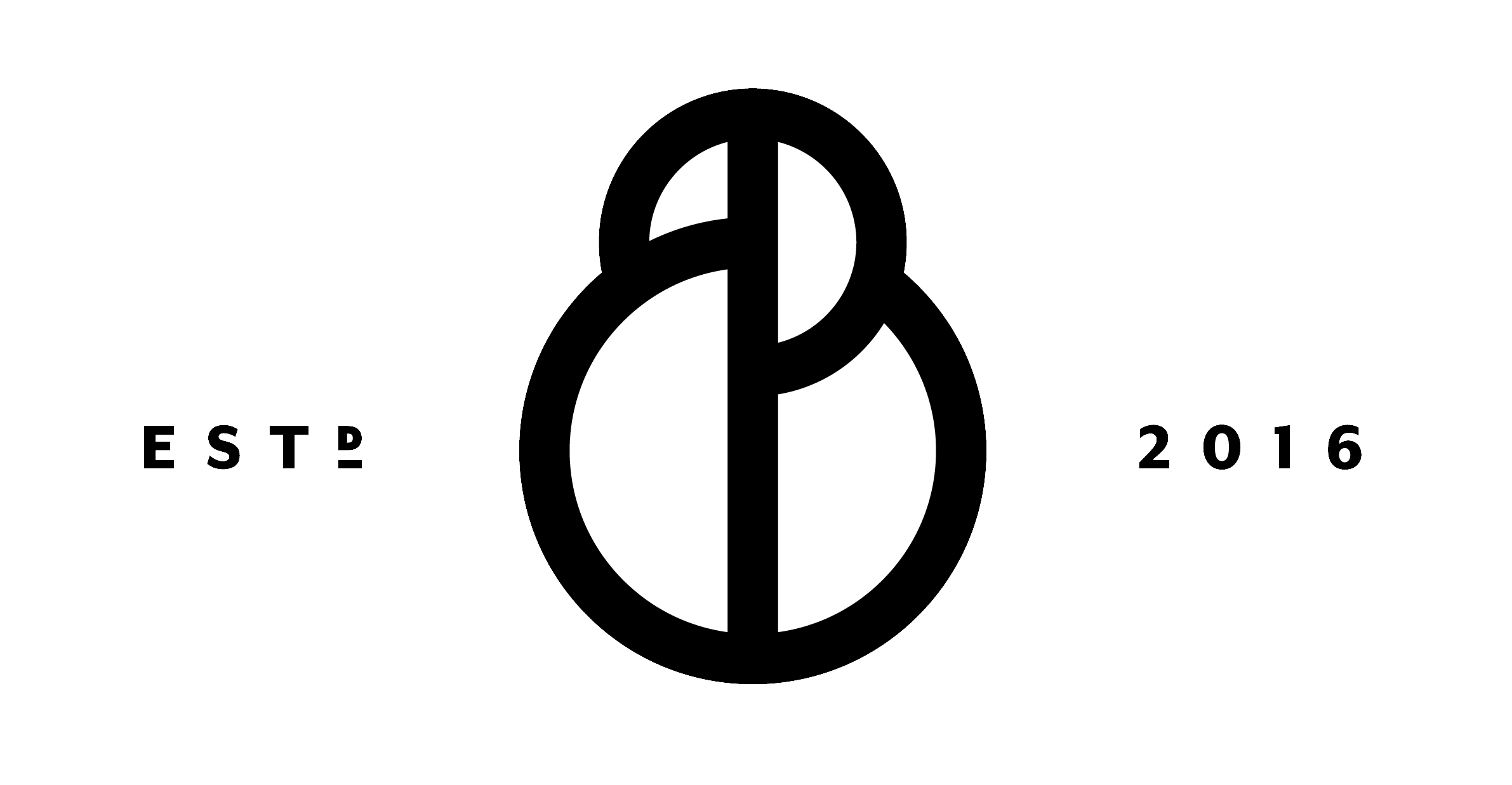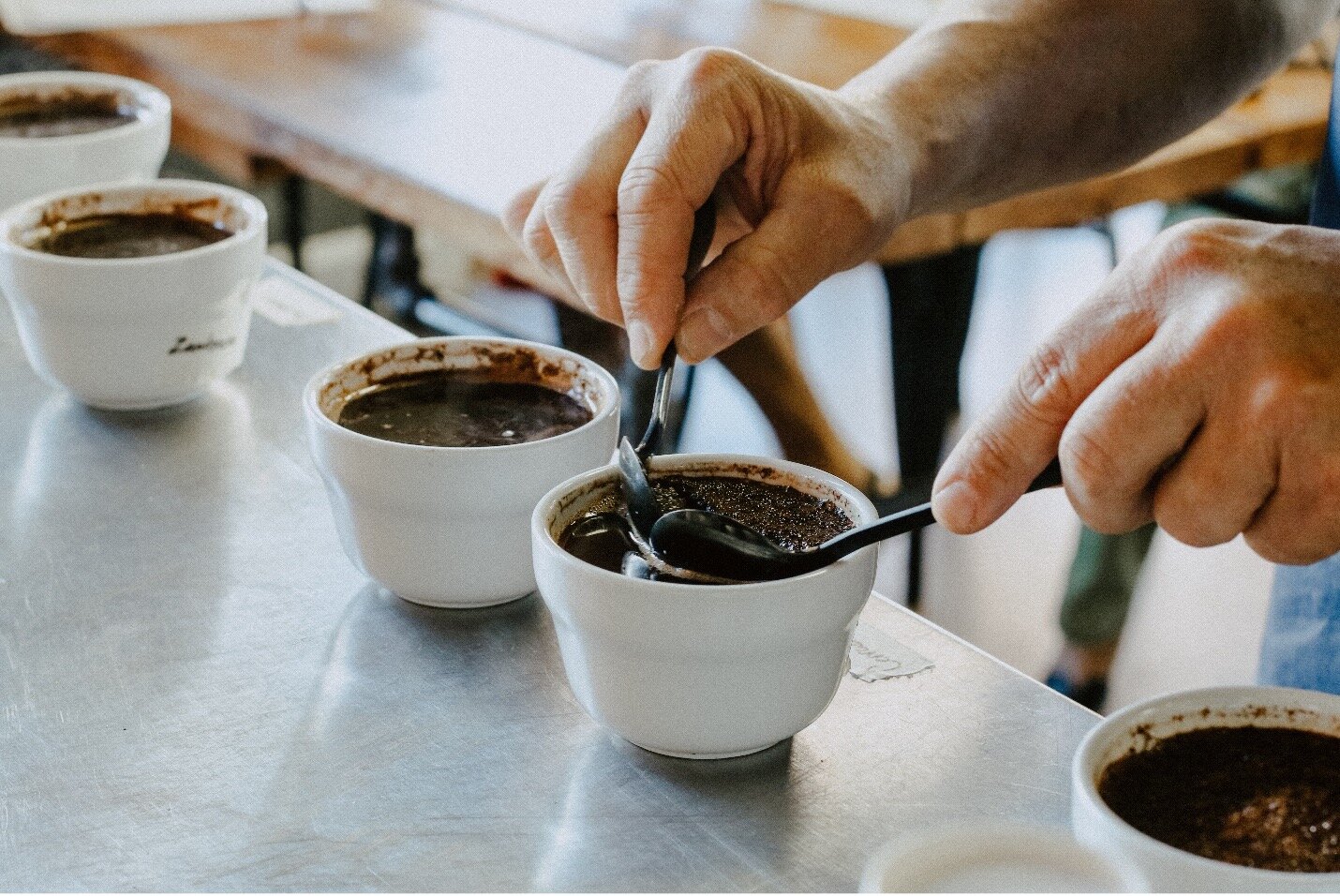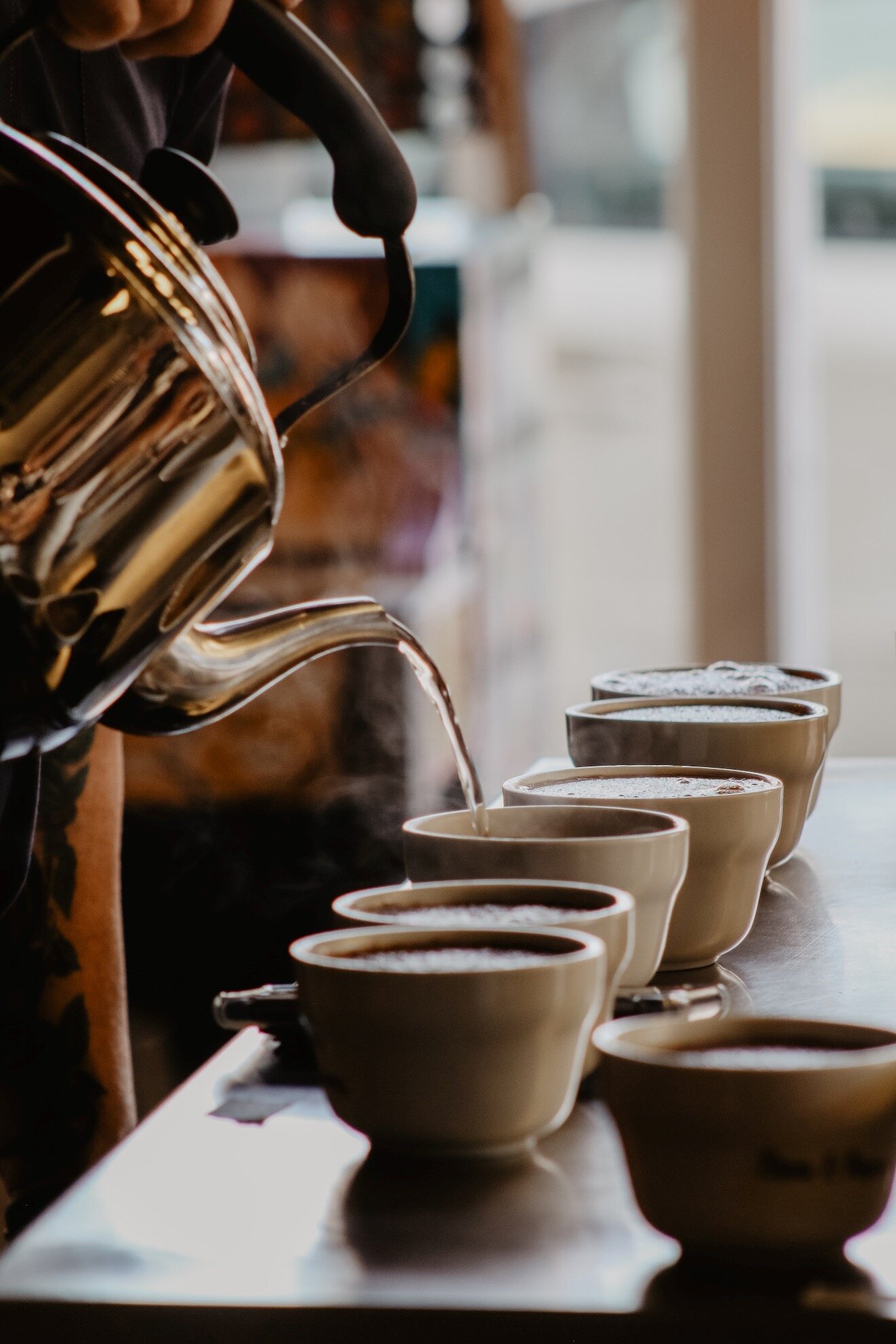What is cup score?
Why is it important?
You may have heard these terms: cupping and cup scores. Maybe you’ve noticed sometimes on coffee bags there is a little number, like 82 or 90. What is this all about? What is a ‘cup score’, where does it come from and why is it important?
To begin with, let’s clear up what this whole ‘cupping’ business is. In essence, cupping is a form of tasting coffees in order to evaluate and assess the quality of the coffee. When we cup, we take a range of different coffees so we can taste them side by side. Then we weigh out the same amount of beans from each different coffee into sets of glasses or cups. We grind them with the same grind size. We pour hot water into the cups and let them brew for the same amount of time. Then you take a spoon and you taste. The idea is, if the amount of coffee, the grind of the coffee and the water used is all the same, well then, the different tastes should be coming from the coffee alone and nothing else. You may have seen people doing this and noticed when someone takes a spoon and loudly slurps coffee from a bowl, like it’s a bowl of soup. It’s fairly memorably.
Coffee being prepared for cupping - the gentleman is scooping the coffee grounds out of a cup using two spoons prior to tasting it. credit: Rene Porter
This method of comparing coffees is incredibly simple, easy to set up and repeatable. What’s more it’s a method that is quite old; people have been using cupping to taste coffees side by side, and quickly, for generations. And that’s the whole point, almost anyone could cup and definitely you could do a cupping at home. However, there is one level of cupping, which is to compare tastes and maybe see which coffees you prefer; another level is that of quality assessment and cup scores.
Around the turn of the last century, the Specialty Coffee Association created a paper form that can be used to ‘score’ coffees. The coffee is tasted and scored on criteria like: sweetness, acidity, body and so on. For example, if it has a lovely citrus like acidity maybe it would score eight or even nine out of ten. This birthed the idea of giving coffees numbers to identify their quality. When you’ve finished tasting and noting down all the scores for each criteria, you can calculate a score out of 100 points total. For a coffee to be considered specialty grade it must be at least 80 points on the scale. This is the very start point to consider a coffee for selection by Boun Beans. In fact, it’s incredibly rare to tastes a coffee that are 90 points or more on this scale. So, in reality cupping scores work a bit more like a 10-point scale:
79 Point < Commercial Coffees
80 – 89 Points: Specialty Coffee
90 Points > Exceptionally Rare Specialty Coffees
When it comes to coffee quality some elements can be truly objective: the presence of defects in the coffee and defective flavours. For instance, some coffees have a phenolic defect, which makes them taste like chemicals. That’s a definite no go. However, making subjective taste preferences objective with a point score has been very difficult over the years. So, in order to make this goal more achievable, special ‘Q Grading’ courses began. These Q or quality grading courses teach people not just how to taste coffee but also focus on calibrating the taster, so that all tasters with this Q Grader certificate would judge a coffee in a similar way. You see if we can both look at the sky and agree it’s blue, well then, it’s blue. If we can both taste a coffee and say, this is an 86 point scoring coffee on a 100 point scale, then that is what it is. We come into agreement on what a score really means and then, we are able to use the numbers as a sort of vocabulary for how good a coffee really is. But without the experience of tasting a lot of coffees, that number is hard to relate to.
Getting good at scoring coffees takes years of skill and practice. It takes exposure to a lot of coffees; tasting time and time again. It also means spending a lot of time with other people who taste coffee, so you can sense how they would judge the coffees and how they identify really amazing sweetness or fruitiness. The important thing to know as a consumer is that the higher the cup score the higher the quality.
Does that mean you will like the coffee more if it’s a higher score? Well, maybe not. A lot of 87 – 90 point scoring coffees are really fruity, with bold citrus notes and sometimes even flowery floral tastes. This might sound amazing, but it also might put you off. Maybe what you want is just a good chocolatey sweet coffee. So, we would encourage you to take the time to look at our taste notes and decide if the taste of the coffee is what you really want. Nonetheless, if you’ve never had one of our exceptional microlot coffees with high cup scores, then definitely try one out! You might be amazed.
Boun Beans is committed to buying fantastic luxury coffees. We only buy coffee that is specialty grade and some of our coffees are even have a cup score of over 90 points. Check out our range and explore both the flavour notes and the details, we are sure there is a coffee that is perfect for you.


